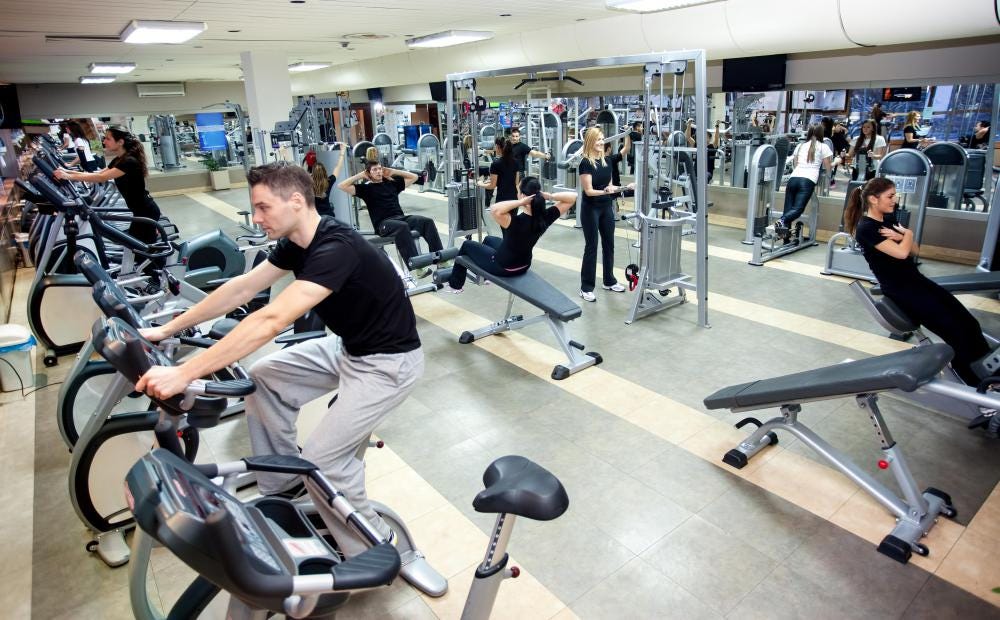The gym is therapy but now how you imagined
A deep dive into using movements as medicince for mental health
Is the gym therapy?
Yes or No?
“The gym is my therapy.”
This is one of those statements that people throw around casually without thinking deeply about what it means.
But I've been deeply thinking about it for years now.
As a philosopher and coach who helps people break out of mental ruts through the physical I've given it a lot of space in my mind and have some answers.
Is the gym therapy?: NO
Moving your body isn't a substitue for going inside yourself and analysing your behaviour patterns and attitudes.
In fact exercise could be a distraction and a way you procrastinate dealing with difficult mental issues. You assume the good feeling hormones that flood your body after a good workout are the solutions to your mental issues, they aren't.
But so many people claim correctly that their mental health improves by going to this gym, are they wrong?
The answer is no but it still doesn't mean the gym functions as therapy.
Is the gym meditation?: YES
What most people experience in the gym is better described as meditation.
They are able to forget the past and future and through the reality of feeling immediate pain and discomfort in the body exist solely in the present. Once you detach yourself from thoughts that give you anxiety or depression you're able to analyze them from a calm and sober position.
So the gym doesn't solve the problem but it DOES give you clarity and calm to approach the problem constructively instead of weighed down by the negative emotions you've attached to it.
But there is more going on than this.
Is the gym physical therapy for the mind?: YES
Getting into the gym can give you a healthier body and therefore help the phyiscal fitness of the brain.
Too much fat creates sluggish thought patterns
Not enough motion creates disregulated sleep
Bad diets affect the Brain-Gut connection
As you improve your physical health you simultaneously start elimintaing the physical conditions associated with poor mental health. This is why SO MANY PEOPLE rightfully claim that the gym improved their mental health dramatically. It’s a byproduct of living in a healthier body.
So it's clear that the gym doesn't truly function as therapy.
But I've pioneered an understanding of movement that I use with my coaching clients and tested on myself first that can legitmately be described as therapy.
Is the gym therapy?: YES, BUT ONLY IF...
If you seriously analyze the movements you enjoy doing in sport and exercise then it has the potential to become therapy.
Here's how it works using my love of trail running.
I believe that each movement we love relates to the values we hold dear and the virtues we want to define our characters. The movements required in trail running look like this broken down into subjective descriptions.
Natural
Relentless
Disciplined
Improvisational
I thought about what it takes to move quickly and gracefully over technical trails filled with rocks, roots, tree stumps, leaves, mud, ice, snow, etc... And I began to notice that the movements related to my character and integrity in profound ways.
This was at the same time I was dealt some challenging situations at work regarding free speech and censorship on university campuses.
I had some mental issues to work out in my mind about staying silent and protecting my budding career as a professor OR stand up for my convictions on the necessity of free speech for academic inquiry.
Thinking deeply about the motions and demands of trail running pointed me in the correct direction and made it easy for me to make the hard but necessary choice to stand up for free speech regardless of how it affected my career (spoiler, it really hurt it!)
The same things that gave me success on the trails proved crucial in helping me navigate a difficult time.
My client just had something similar present itself to him last week. A career opportunity presented itself and gave him deep anxiety over his lack of control over the future.
He used to go running in a time like this because he wrongly thought it was his 'therapy' but ultimately resulted in him running circles in his mind around the problem but NEVER SOLVING IT.
This time he went to the gym and lifted HEAVY as away to use movement to help both give him meditative space but also to use the motion patterns as a type of therapy after the fact.
Lifting weights was a way to gain control over an uncontrollable situation. Once he found the meditative calm he then turned directly to solving the problem in the immediate aftermath of going to the gym to lift.
This was therapy through motion because of the application of analyzed motion patterns directly to solve the mental problem inside his head. When you can dissect and understand the deep meaning of the movements of the gym they have the potential to become therapy.
But most have no understanding of how to intentionally aim themselves at this type of therapeutic application of exercise and sport
That's why I'm here
This is my philosophy
I live it
I teach it
Now it's yours as well ❤️







